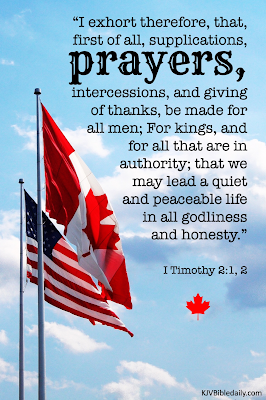This post is part 7 of a series on Christian citizenship, and why I believe mixing Christian identity with American identity is bad for both. My intent in sharing these short Biblical reflections is not to "prooftext", or just compile a list of unrelated Bible verses to support my argument. Rather, I hope to give you little bite-sized thoughts, which I believe represent themes you'll find throughout the Bible and historic Christian teachings.
I hope they make you think.
Today's reason why I want to live as a Christian in a multi-faith nation:
The author of 1 Timothy encourages prayers, supplications and thanksgivings “for all people, for kings and all who are in high positions, so that we may lead a quiet and peaceable life in all godliness and dignity.”
In the late first century, when this letter was written, there were no Christian kings, nor did any Christian occupy any “high position” in government. The leaders being prayed for were all pagans. All of them. Every single one worshiped Greek and Roman gods.
Yet Timothy and his congregation are encouraged to pray for them “so that we may lead a quiet and peaceable life in all godliness and dignity.” Early Christians did not see it necessary for their leaders to share their faith, much less set policies based on it, in order for their faith to flourish. To their mind, the task of leaders is to provide for “peaceable lives” for all their citizens, no matter their faith. They can do so sustained by our prayers, but they need not be sustained by a Christian faith of their own.
According to the New Testament, it is not the job of secular leaders to promote Christian values, even if those leaders are Christians themselves (though again, at that time, none of them were). It is enough that leaders protect the citizens and do justice. The spread of faith is the job of the Holy Spirit.
For a good biblical example of living as a religious minority in a nation that does not share our faith, check out tomorrow's post.
For more background information read this statement from the ELCA's presiding bishop, or learn about Christians Against Christian Nationalism.

No comments:
Post a Comment